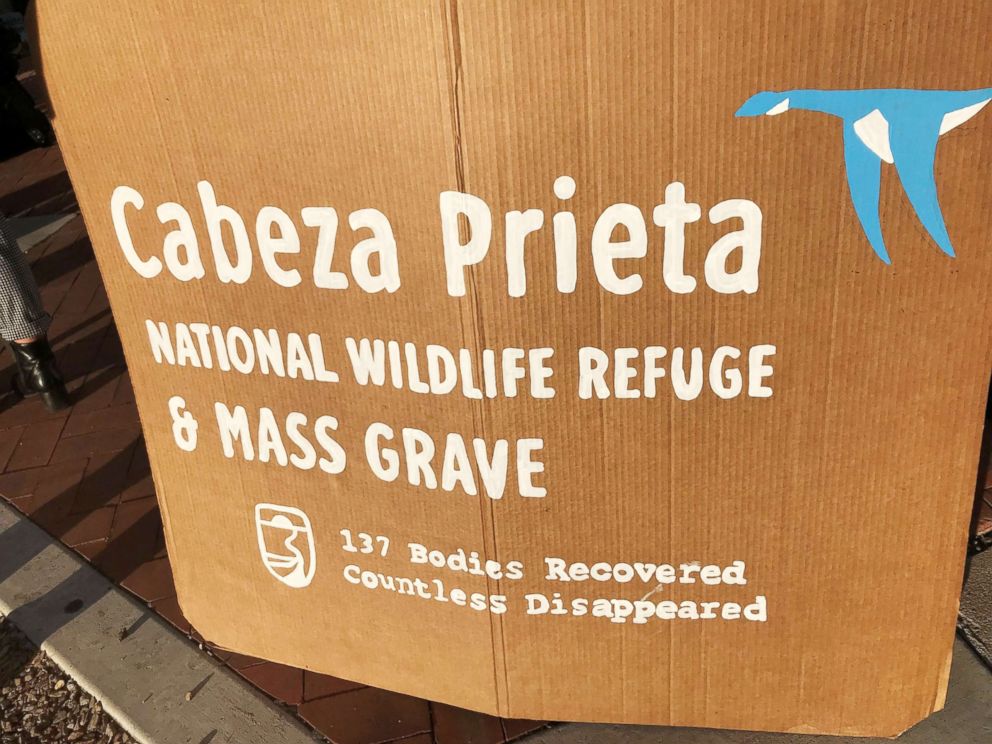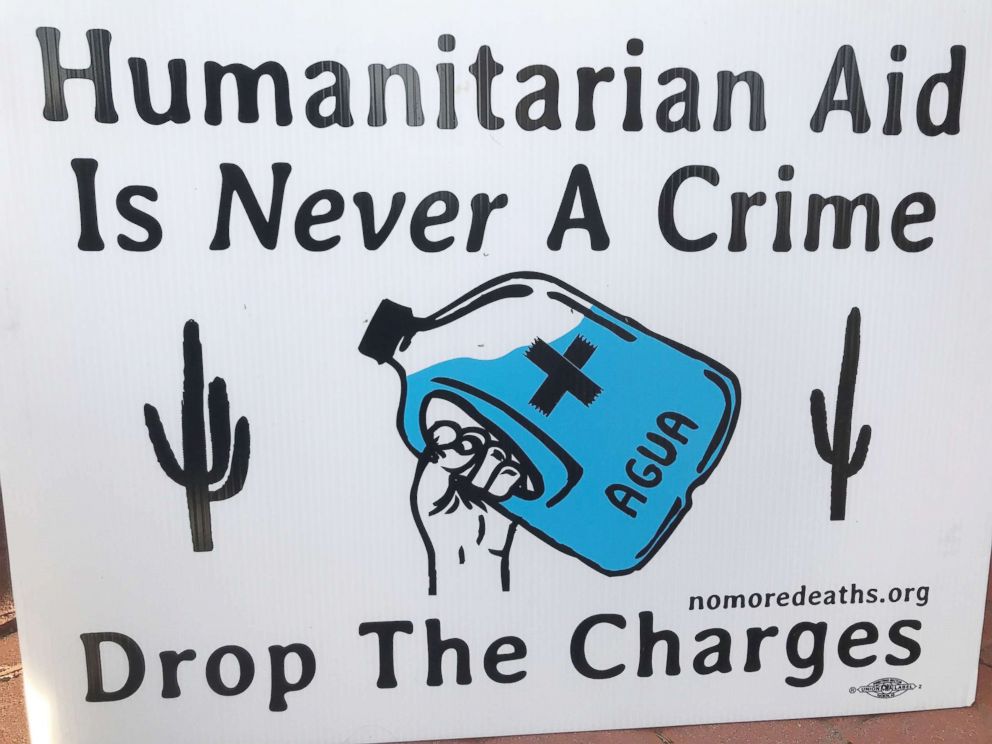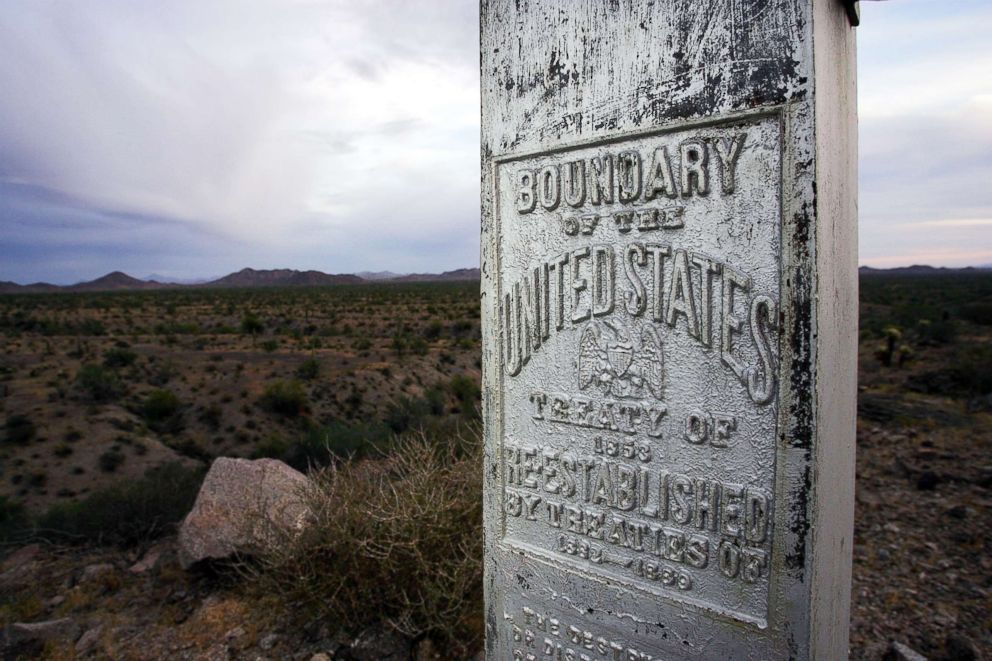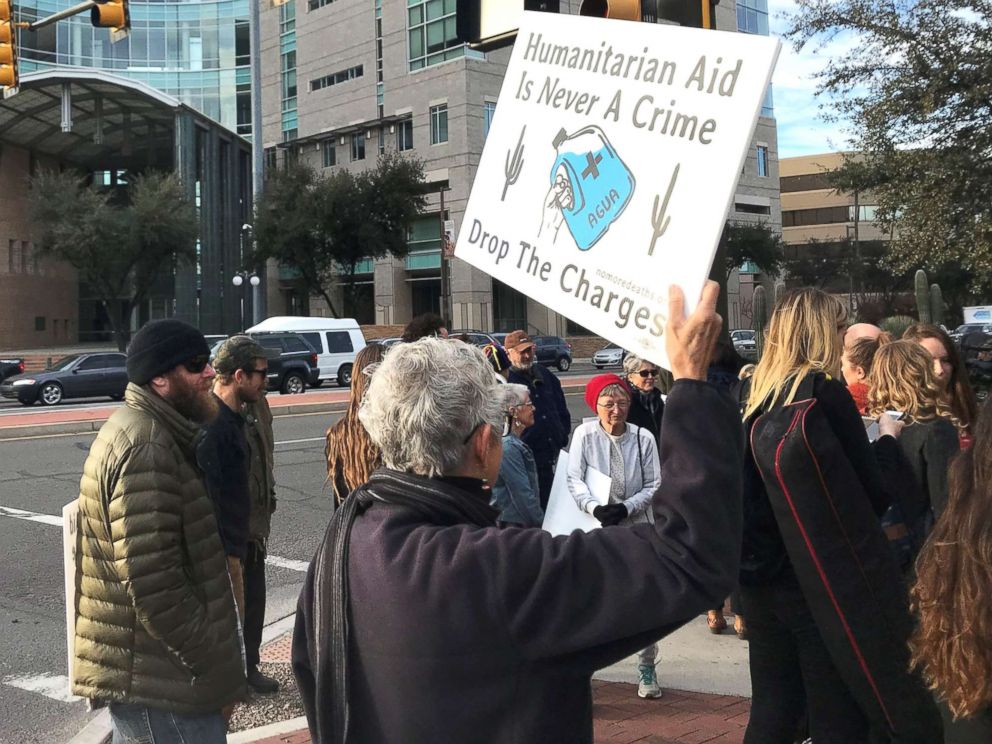Humanitarian volunteers convicted on charges related to leaving food, water for migrants at Arizona-Mexico border
A federal judge said volunteers didn't have permits to drive on protected land.
Four humanitarian aid volunteers have been found guilty in federal court on charges related to them leaving food and water in a protected wilderness for migrants crossing the border near Arizona.
Each of the women convicted are part of Tucson and Phoenix-based advocacy group No More Deaths, which seeks to end the deaths of undocumented immigrants crossing the desert regions near the U.S.-Mexico border, according to the group's website.
The charges stem from an incident on Aug. 14, 2017, when the helpers encountered a U.S. Fish and Wildlife officer at the Cabeza Prieta National Wildlife Refuge in southwestern Arizona after they operated a vehicle there without a permit and left behind gallon jugs of water and cans of beans, the Arizona Republic reported.

The location was near where three migrants who crossed the border weeks earlier had gotten lost, according to the Phoenix newspaper. One of the migrants was never found.
Volunteer Natalie Hoffman was charged with operating a motor vehicle in a wilderness area, the verdict states. She and volunteers Oona Holcomb, Madeline Huse and Zaachila Orozco-McCormick were also charged with entering a national wildlife refuge without a permit and abandonment of property, according to the verdict, which was filed in the U.S. District of Arizona on Friday.

U.S. Magistrate Judge Bernardo Velasco wrote in his decision that a federal law requires people who access Cabeza Prieta to obtain a permit for entry, which would require the applicant to remain on designated roads and not leave anything within the refuge.
"In short: with authorized permits, pack it in/pack it out," Velasco wrote.
Not only did the women not get a permit for access, they also left water, food and crates on the protected land, the verdict states.
"All of this, in addition to violating the law, erodes the national decision to maintain the Refuge in its pristine nature," Velasco wrote.
In addition, the preserve is "littered with unexploded military ordinance" because it is surrounded by the U.S. Department of Defense's Barry Goldwater Bombing Range, according to the verdict. The Tohono O’Odham nation and U.S. Border Patrol are also nearby, Velasco wrote.

After the trial began last week, Orozco-McCormick testified that she considered the work to be "sacred" and compared the refuge to a graveyard due to all the migrants who have died there, the Arizona Republic reported.
The women did not seek a permit because they would have been required to sign an agreement, which is required of anyone seeking a permit, according to the Republic.
When Hoffman was asked why she didn't sign the document, she replied, "I was there to leave water," the newspaper reported.

Velasco wrote in his decision that the defendants claimed they were acting in accordance with a higher law, adding that one of the defendants claimed "her conduct is not civil disobedience, but rather civil initiative, which is somehow not a criminal offense."
The women did not known their conduct could be punishable for up to six months in prison, and each acted on "the mistaken belief that the worst that could happen was that they could be banned" or fined, according to the verdict. No More Deaths did not inform them their conduct could be prosecuted as a criminal offense, Velasco wrote.
The court will decide on an "agreeable date" for sentencing next week. In addition to six months in prison, the women may also face a $500 fine each, the Tucson Sentinel reported.
After the decision was filed, protesters with No More Deaths held a "vibrant noise demonstration" outside of the Eloy Detention Center in Pinal County, Arizona, the group wrote on Instagram.
"We wanted those inside to know we see them, that we know they resist, that they are not forgotten," the group wrote. "We took this action because though our work is so often centered on the death and suffering in the desert, but we know the story doesn't end there."
Neither No More Deaths nor an attorney for the volunteers immediately returned ABC News' request for comment.




